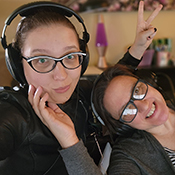Breast augmentation is a procedure sought by a substantial number of trans women who medically transition: 11% of trans women respondents to the 2015 U.S. Trans Survey report undergoing the procedure, while another 40% state that they want it some day. However, trans and cis women seeking breast implants should be aware of the possibility of developing anaplastic large-cell lymphoma (ALCL), a rare non-Hodgkin’s lymphoma that appears to be linked to these implants in a small number of cases.
Since 1997, reports have increasingly emerged of breast implant-associated anaplastic large-cell lymphoma (BIA-ALCL), and trends in the development of the disease have now been identified. As of 2018, the FDA has received 414 reports of individual cases of BIA-ALCL. Notably, the implants involved had a textured surface in 242 cases, and a smooth surface in only 30 cases. A textured surface serves to promote adhesion to the surrounding tissue and reduce migration of the implant, and the Rutgers Cancer Institute of New Jersey notes that the surface may cause inflammation linked to the development of ALCL.
Overall, the occurrence of BIA-ALCL is still considered to be “very uncommon”. According to the FDA, BIA-ALCL “may develop in 1 in between 3,817 to 30,000 women with textured breast implants”. Rachel Blubond-Langner, an associate professor of plastic surgery at NYU Langone Health, has noted that since trans women use the same range of breast implants as cis women, they are not likely to be at a disproportionate risk: “We would have to assume that the risk is the same in a transgender female.”
While there is no need for routine screening for BIA-ALCL or removal of implants in those without any symptoms, women with implants should pay attention for signs of the disease, which include pain, swelling, irritation, and fluid buildup around the implant. ■



